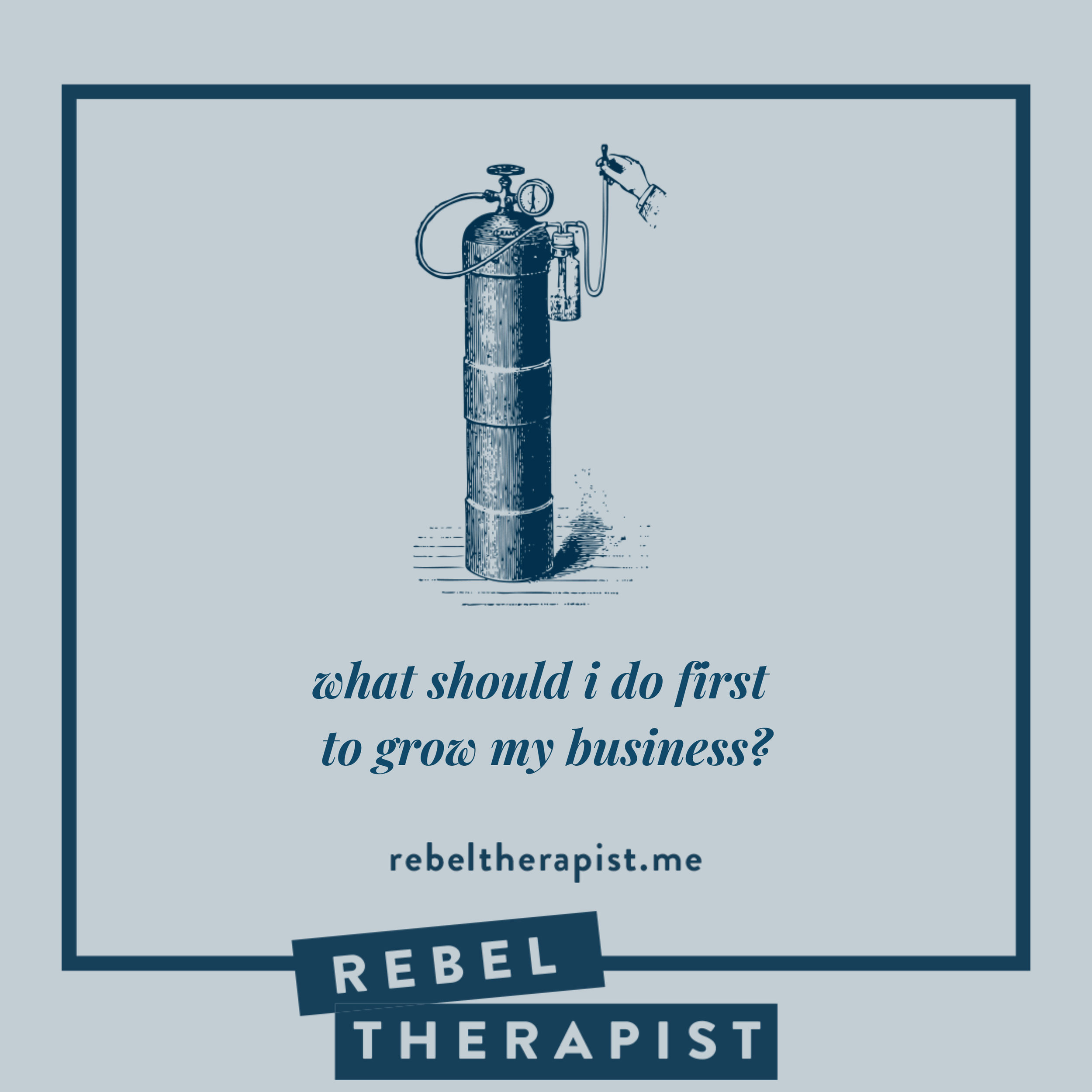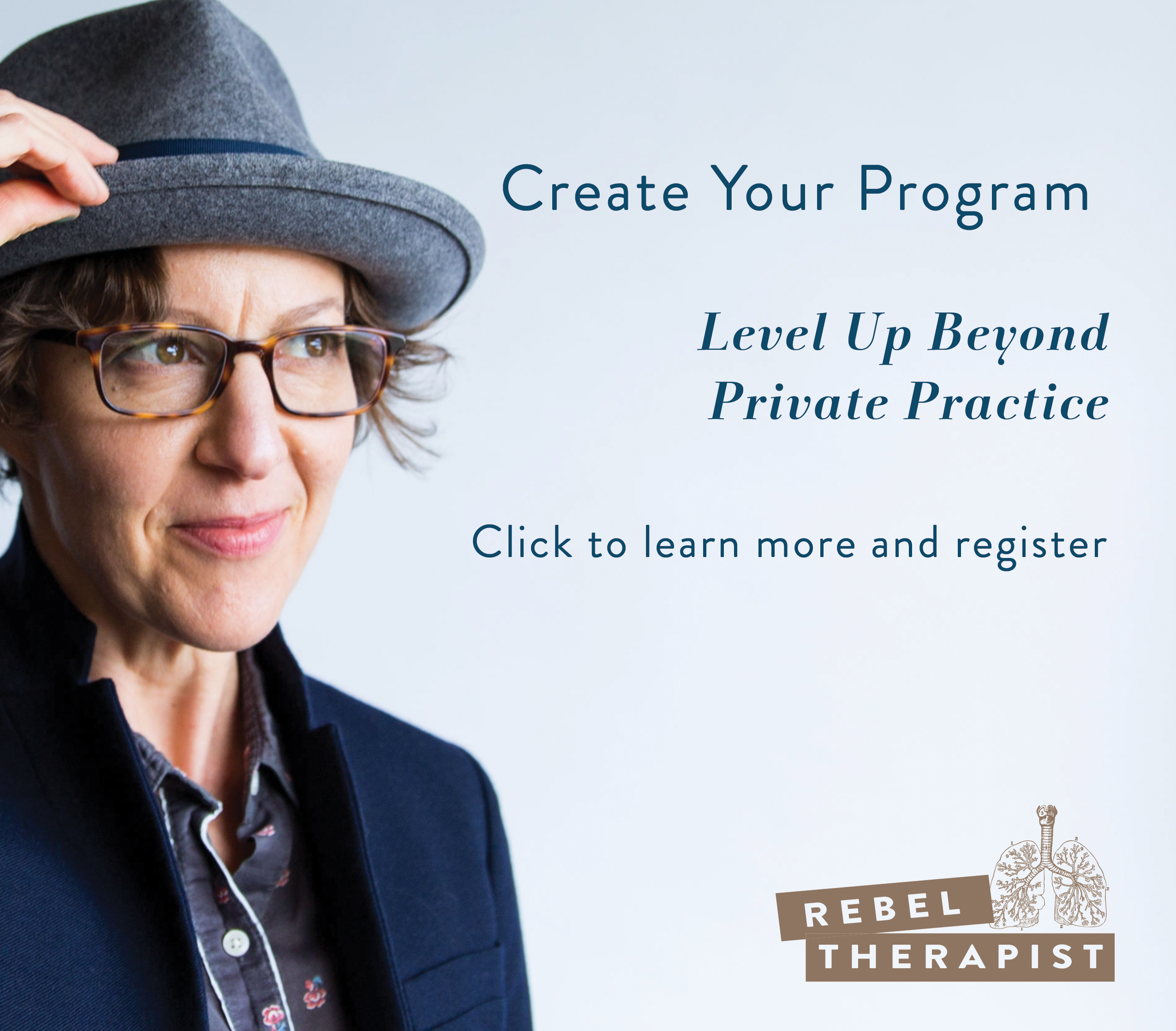Listen above or on your favorite podcast platform.
Show Notes:
People ask me all the time “What should I do now to grow my business?”
Often they say: “I heard….is a good idea. Should l do that?”
Every online business expert is selling their thing to us. (Including me!)
Our friends and colleagues tell us that what they are doing now is THE thing that works.
It’s confusing to figure out what to invest our time and money in and what to try.
What should YOU focus on next?
People ask me whether they should:
Figure out their visual Branding.
Uplevel their Website design.
Learn Copywriting skills
Learn email marketing skills
Dive into Social media strategy
Get on Tiktok
Buy legal templates
Redesign their curriculum
Join a high priced mastermind
Buy another business course
Learn how to run paid ads
Start a podcast
Start being a guest on podcasts
Create a self-led course
Hire a virtual assistant or an online business manager
Invest in a new tech platform to get organized
Create a monthly membership
How do you figure out what you should do?
I’ve gotten really clear that before we talk about WHAT you should do, we need to talk WHEN you should do certain things.
If you ask me whether you should hire a social media manager or create a monthly membership or take a copywriting course or really anything…my first question will be:
Where are you in your business right this minute?
I used to be way more agnostic about this. If you worked with me in 2018 you might have heard me say…sure it might not be ideal but…you COULD try a monthly membership as your first thing. I didn’t want to take anyone’s freedom away.
I got clear pretty fast that doing things in the wrong order sets us up to lose money and feel miserable.
As you’re creating a business beyond private practice, and stepping into the world of online services that are not therapy, you can waste a TON of time and money doing things in the wrong order. Even if those are not the wrong things to do.
I sometimes hear very sad stories from people who started with the wrong things.
People tell me they invested in 20K coaching programs as one of their first steps in business beyond private practice. Those programs taught them to use complicated funnels including paid ads and webinars.
I’ve talked to other folks who started hiring a team as their first thing. They figured since the marketing felt hard, they’d start by hiring someone to “take over all of their marketing.”
Other people got advice that they should grow a huge social media following as their first step.
Their businesses were not at the right stage for any of those moves, and their frustration and sadness comes from feeling like they’ve failed, they’ve wasted tons of money, and even believing it’s their fault.
Any of those moves might make sense at the right time.
I’m not saying coaching programs should never cost 20k. That’s not the takeaway.
For some business owners, hiring someone to help you implement your marketing strategy might make sense when you’re at a certain stage.
And developing a social media following is still part of a sound strategy for some business owners.
Here’s a small tangent on that one. Growing a huge audience as your first step used to work. That’s why people keep teaching it.
Tara McMullin, one of my mentors, and my guest in the last episode, wrote a wonderful article titled: You Can’t Grow an Audience Like You Used To (and That’s Okay)
Tara walks us through the history of online marketing and explains why the strategy of growing a huge audience and THEN starting to sell stuff to them worked in the past and is not working any longer.
If you’re thinking…"but that’s what Pat Flynn did! That’s what Amy Porterfield did!" you might want to read that article.
End of tangent.
You’ve gotta take steps to create and then grow your business in the right order. Just like you have to build a house in the right order. You shouldn’t start with the roof.
So what ARE the first things to do when you’re in stage one of a new business?
(Perhaps you’ve already got a private practice, but we’re talking about creating a NEW business beyond private practice. Any new business starts at stage 1.)
Stage one has 3 steps. Those 3 steps are to identify a viable niche, create a highly valuable offer for that niche, and sell that offer.
Let’s go through each of those for a moment.
The first step is to identify a viable niche.
If you want to hear me talk through the process of choosing your niche, head to my episode titled The Best Niches Beyond Private Practice.
Sometimes therapists and healers want to skip or rush through this step.
Niche work can feel tedious. It can feel limiting. It can feel…NOT like what you want to do first!
And maybe you know you can serve a whole bunch of different niches really well. Maybe in your private practice you haven’t niched and you’re very successful.
Well… creating a signature program and a business beyond private practice with a vague or broad niche is VERY difficult and sets you up to feel discouraged and sad.
So go listen to that niching episode to hear examples of viable niches and what makes a great niche.
Step two is to create and a pilot or beta offer for that niche.
Do this quickly so that you find out whether your idea works and so that you can start making money.
Your pilot is going to be highly interactive, and you’re going to deliver it 1:1 or to a very small group. You’re crafting your pilot for the people in your niche, based on exactly what they need from you and what you’re great at delivering.
Sometimes therapists want to skip over this step and create a passive online course or start building a monthly membership.
Don’t start there. Because:
That only possibly works when you’ve got a lot of people aware of your work and in your audience.
Even if you have a big audience, every offer should start live and interactive. That’s how you’re gonna build the best offer.
If you pre-record videos for your pilot, you’re going to be re-recording them for round 2. You might as well save yourself ALL of those hours.
The formats I recommend for a pilot are:
Small-group coaching
1:1 coaching
Training or consulting package for an organization
Workshop
Retreat
Once you’ve done those first 2 steps, identifying your niche and crafting your pilot offer, you’re ready for the next step.
Step 3 is to sell your program.
You’ll do this through a relational/soft launch. You’re going to tell everyone you know that you’ve created this pilot, and you’re going to invite your first participants.
A relational launch will include reaching out personally to your colleagues, announcing your offer in communities you belong to, sending personal invites to potential participants, offering discovery calls to people who are considering signing up, and maybe running free interactive events like a Q&A or a free workshop over zoom.
If you’re not sure whether enough people are aware of your work and ready to make those referrals, you’re going to start with a 1:1 offer even if you KNOW you’re going to turn it into a group offer soon.
A lot of people ask me how long it takes to move through those 3 steps.
You can go through them in 8 weeks or you can take up to a year.
That length of time depends on:
your focus
whether you get led away to other opportunities
how much time you can dedicate to the process
whether you try out some vague niches or wrong-fit pilots
whether the tech involved in these steps trips you up
your willingness to ask people to spread the word
your willingness to invite people to your program
your ability to communicate your understanding of your right fit person’s situation
your ability to communicate the value of your offer
There’s one more thing you might want to do in stage one. You’re probably going to want to start an email list.
If there’s a good chance you’re going to stick with this niche, you’ll likely regret not having started an email list.
And don’t do ANYTHING else until you’re through stage one.
Don’t focus on branding or naming or Tiktok or anything else.
Those activities will take you away from your first 3 steps. And you won’t get much value from those things until you’ve done those 3 steps.
Any skilled branding expert or web designer or copywriter is going to ask you to tell them about and show them your foundation. Then they can help you amplify it. If you don’t have a business, there’s nothing to amplify.
But what about tech platforms?
The only tech/platform things you might need or want are:
A simple, DIY, one or 2 page website for describing and selling your offer
A simple checkout process so that people can pay you
The minimal platforms needed to deliver the program (like zoom)
And perhaps you’ll want
Legal templates
An email marketing service so that interested people can get on your email list
Invest in a working with a business coach in stage one ONLY if you think they will help you get it done faster, you can pay for that help without going into debt, and it costs an amount you can soon make back.
Find a person or program who will help you only focus on those first 3 steps until you’ve gotten through them.
Once you’ve served some people with your pilot, you’ve got a business and you can start discerning what you’re going to do next grow your business.
You’re in stage 2.
Stage 2 is when you can focus on reaching more people, honing your messaging, and reiterating and improving your offer.
I’ve got a program for you to get you all the way through those first 3 steps of stage 1 in 8 weeks.
It’s called Create Your Program.
I designed CYP to help you start a solid business beyond private practice, whether that’s gonna be your main thing or a profitable side hustle.
Some people come to CYP as their first move beyond private practice.
Other folks come to CYP after they’ve invested in programs where they learned marketing strategies their businesses weren’t ready for.
After CYP they’re in a much better position to use what they learned in those other programs.
Get on it so you hear when I open registration.
In CYP I guide you step-by-step from niching all the way through launching a pilot program. This is a small group experience where you’ll get a lot of brave work done in a supportive group of driven and open hearted entrepreneurs like you.
If you’re worried about the legal part of this, you are not alone. We have a guest attorney come in to answer your legal questions and recommend your first steps in that area.
The last two times I opened registration, CYP filled early, so do make sure you’re on the waitlist so that you hear as soon as it opens.



